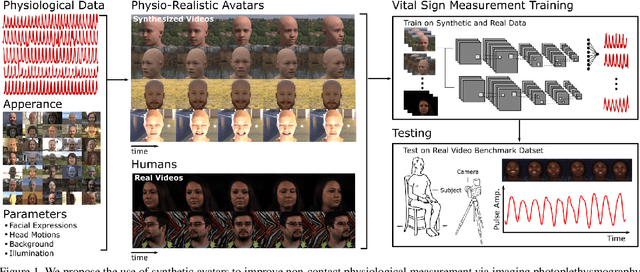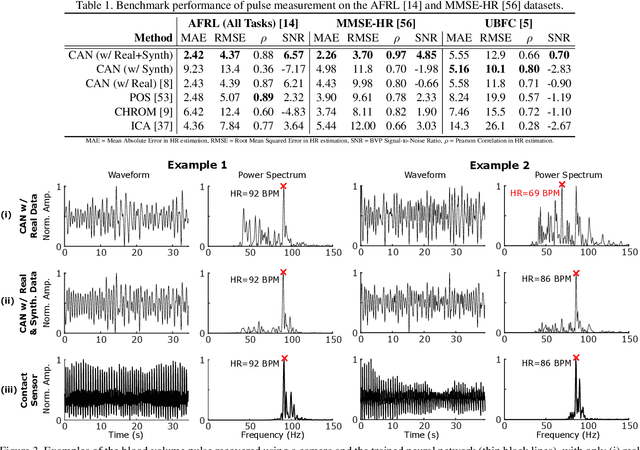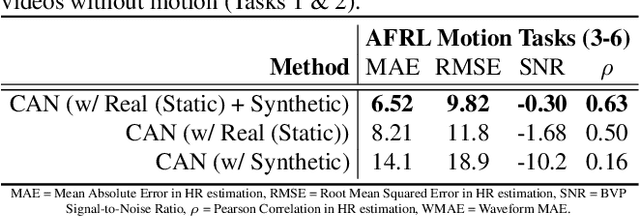Advancing Non-Contact Vital Sign Measurement using Synthetic Avatars
Paper and Code
Oct 24, 2020



Non-contact physiological measurement has the potential to provide low-cost, non-invasive health monitoring. However, machine vision approaches are often limited by the availability and diversity of annotated video datasets resulting in poor generalization to complex real-life conditions. To address these challenges, this work proposes the use of synthetic avatars that display facial blood flow changes and allow for systematic generation of samples under a wide variety of conditions. Our results show that training on both simulated and real video data can lead to performance gains under challenging conditions. We show state-of-the-art performance on three large benchmark datasets and improved robustness to skin type and motion.
 Add to Chrome
Add to Chrome Add to Firefox
Add to Firefox Add to Edge
Add to Edge